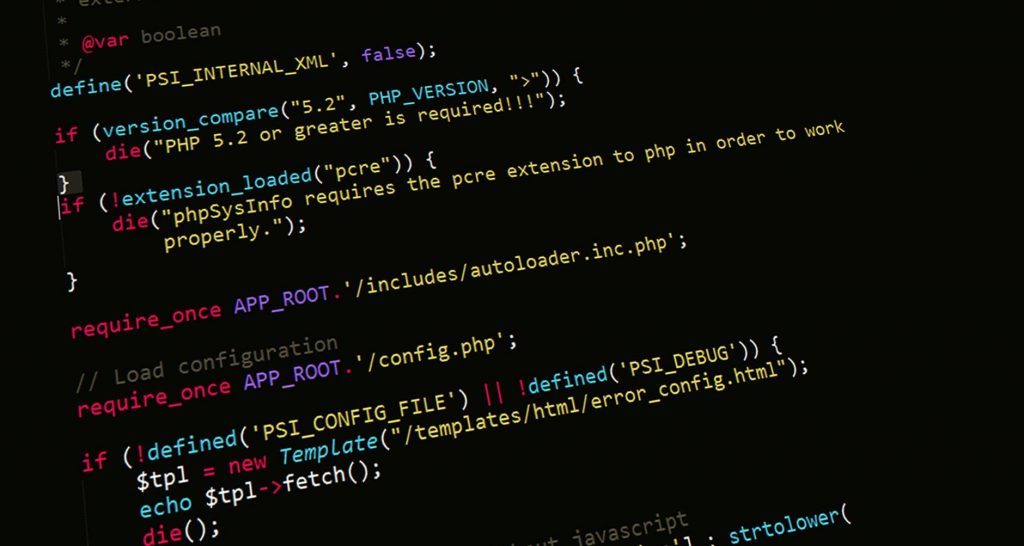Computer Science

Hampton University offers the Master of Science (M.S.) program in Computer Science that is suitable for computer science majors, as well as those who have a strong interdisciplinary background. Following the Hampton tradition, the Computer Science department has created a friendly environment, with low student/faculty ration and a curriculum that can be adapted to individual needs. Experimental research programs, strong faculty commitment to teach and research, and excellent computing facilities, yield to a fertile environment in which to get an advanced degree. For those without a strong background in computer science, a set of bridge courses provide the necessary background for regular admission to the MS program. Graduates of the program have been actively recruited and hired by major software and hardware companies for positions in software development, testing and marketing.
Program Highlights
The Department of Computer Science has numerous computing facilities available to all graduate students. Students have access to major programming languages, databases and current software packages within the department local area network. The department maintains its own Computer Center. The Center consists of five major laboratories and a well-equipped server center.
The M.S. degree program in Computer Science allows each student to obtain a broad background in areas of Programming Languages, Operating Systems, Theory of Computation, Software Engineering and Artificial Intelligence. Six required core courses are taught in these areas. Six elective courses are taken to broaden and deepen the experience, followed by a comprehensive examination. For the students interested in conducting a research project, a thesis may be substituted for one course and the thesis defense for the comprehensive examination.
Research projects are readily available since faculty is actively involved in research. Major areas of specialization include:
- Software Engineering
- Artificial Intelligence / Computational Intelligence / Robotics
- Operating Systems
- Algorithms / Bio-inspired Algorithms
- Networking
- Information Assurance and Cyber Security
Financial Assistance
The Department of Computer Science has numerous computing facilities available to all graduate students. Students have access to major programming languages, databases and current software packages within the department local area network. The department maintains its own Computer Center. The Center consists of five major laboratories and a well-equipped server center.
The M.S. degree program in Computer Science allows each student to obtain a broad background in areas of Programming Languages, Operating Systems, Theory of Computation, Software Engineering and Artificial Intelligence. Six required core courses are taught in these areas. Six elective courses are taken to broaden and deepen the experience, followed by a comprehensive examination. For the students interested in conducting a research project, a thesis may be substituted for one course and the thesis defense for the comprehensive examination.
Bridge Program in Computer Science (Non-degree Program)
The Bridge Program in Computer Science prepares students for graduate work in the Master of Science program. The main goal of this program is to provide students from other disciplines with the necessary background to pursue a Master’s degree in Computer Science. A secondary goal is to provide formal training for people in various technical disciplines who need significant background in computing.
The Bridge Program consists of comprehensive courses at the 500-level that provide the equivalent of the core undergraduate computer science curriculum. The following minimum requirements must be met before, as determined by the Department Chair, a student can be admitted to the program:
- A bachelor’s degree of higher
- Two semesters of calculus and one semester of discrete mathematics
- Formal training or experience in programming to the level of Computer Science 501
Degree Plan of Study: Computer Science
Required Courses: 21 Credits
Credits
CSC 510
CSC 620
CSC 630
CSC 640
CSC 650
CSC 660
CSC 681
Mathematical Foundations
Operating Systems
Artificial Intelligence
Software Engineering Foundations
Theory of Computation
Programming Languages
Research Seminar
3
3
3
3
3
3
3
Degree Plan courses: 15-16 Credits
Plan A
Plan B
Approved Elective
CSC 684/689: Thesis Research/Thesis
Approved Elective
CSC 702: Comprehensive Examination
11
4
15
1
Requirements for Bridge Program in Computer Science (as determined by the Department Chair):
CSC 501
CSC 502
CSC 506
CSC 507
CSC 508
Programming
Advanced Programming
Advanced Programming and Data Structures
Architecture and Operating Systems
Programming Languages
4
3
3
3
3
Total Credits: 36-37
This profile sheet should be used in concurrence with your academic catalog and the guidance of your academic advisor.


